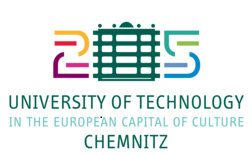Dealing With Unethical Behaviour
Anyone may inform the Editor-in-Chief or Editorial Board at any time of suspected unethical behavior or misconduct by providing credible information or evidence to initiate an investigation.
Investigation Process
The Editor-in-Chief decides to initiate an investigation based on the credibility and sufficiency of the provided evidence. During the investigation, all evidence is treated as strictly confidential and only shared with those directly involved in the process. The accused individual will always be given the opportunity to respond to any allegations made against them. If the investigation concludes that misconduct has occurred, it will be classified as either minor or serious.
Minor Misconduct
Minor misconduct refers to actions that do not significantly impact the integrity of the paper or the journal, such as misunderstandings or minor errors in applying publishing standards. Examples include:
- Inadvertently omitting a cited source from the reference list despite proper citation in the text;
- Minor formatting errors that do not affect the scientific content of the paper.
Minor misconduct will be addressed directly with the authors and/or reviewers without involving third parties. Possible outcomes include:
- Sending a warning letter to the authors and/or reviewers;
- Publishing a correction to the paper, e.g., adding omitted references to the reference list;
- Publishing an erratum, e.g., if the error was made by the editorial staff.
Major Misconduct
Major misconduct refers to serious breaches of ethical standards that undermine the integrity of the research or the journal. Examples include:
- Plagiarism, including the unattributed use of text, data, or ideas;
- Fabrication or falsification of data;
- Submitting a manuscript to multiple journals simultaneously without disclosure;
- Engaging in fraudulent peer review practices, such as providing fake reviewer identities.
In cases of major misconduct, the Editor-in-Chief or Editorial Board may adopt the following measures:
- Publication of a formal announcement or editorial describing the misconduct;
- Officially informing the author’s or reviewer’s affiliated institution;
- Formally retracting the publication from the journal in accordance with the Retraction Policy;
- Imposing a ban on submissions from the individual for a defined period (e.g., 1-3 years);
- Referring the case to a professional organization, such as the Committee on Publication Ethics (COPE), or a legal authority for further investigation and action.
These actions may be taken separately or in combination. If necessary, the Editorial Board may consult relevant expert organizations, bodies, or individuals to resolve the case.
Adherence to COPE Guidelines
When dealing with unethical behavior, the Editorial Board adheres to the guidelines and recommendations provided by the Committee on Publication Ethics (COPE). All investigations and resolutions are conducted in accordance with COPE’s best practices to ensure an ethical and impartial process.
For more details, see our Publication Policy.











